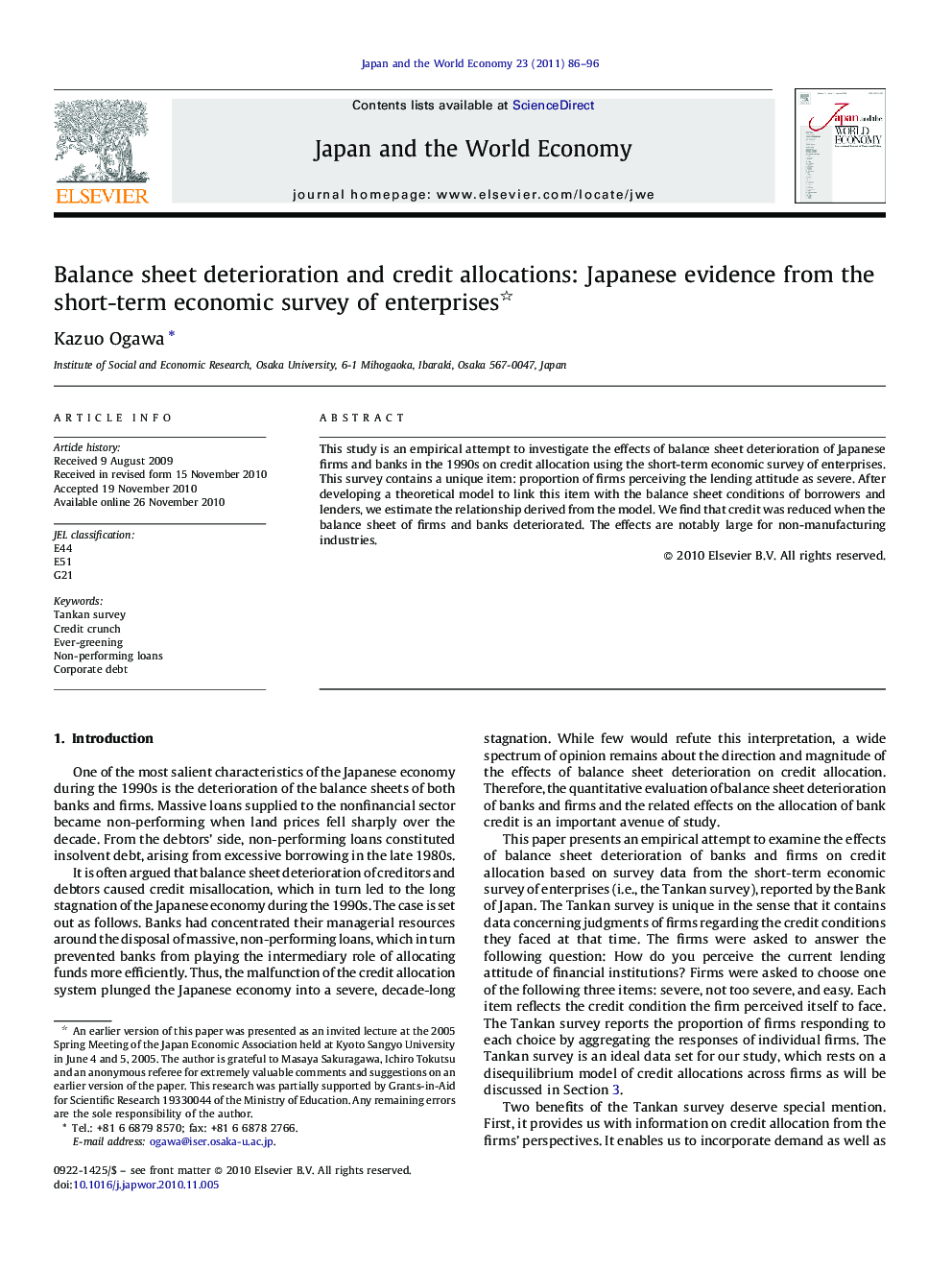| Article ID | Journal | Published Year | Pages | File Type |
|---|---|---|---|---|
| 5086236 | Japan and the World Economy | 2011 | 11 Pages |
This study is an empirical attempt to investigate the effects of balance sheet deterioration of Japanese firms and banks in the 1990s on credit allocation using the short-term economic survey of enterprises. This survey contains a unique item: proportion of firms perceiving the lending attitude as severe. After developing a theoretical model to link this item with the balance sheet conditions of borrowers and lenders, we estimate the relationship derived from the model. We find that credit was reduced when the balance sheet of firms and banks deteriorated. The effects are notably large for non-manufacturing industries.
Research highlightsⶠWe examine the effects of balance sheet deterioration of banks and firms on credit. ⶠWe use Japanese survey data from the Short-term Economic Survey of Enterprises. ⶠWe relate information in the survey to factors underlying loan demand and supply. ⶠBad loans raise the proportion of firms perceiving the lending attitude to be severe. ⶠFirm debt raises the proportion of firms perceiving the lending attitude to be severe.
